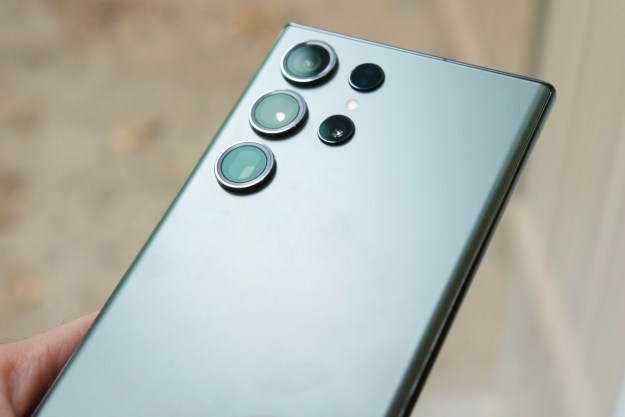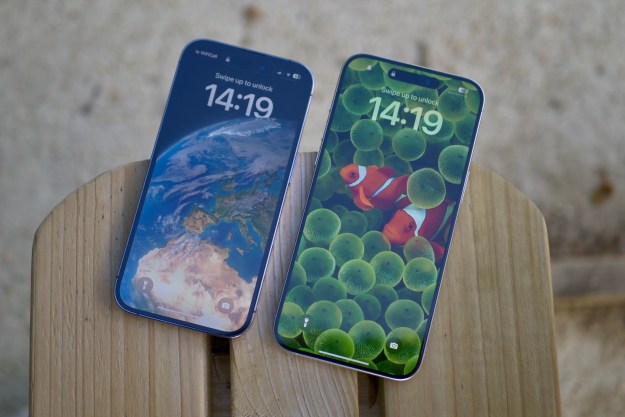In recognition of National Cellphone Courtesy Month, Sprint (NYSE: FON) has announced the results of The 2004 Sprint Wireless Courtesy Report, a nationwide survey of wireless etiquette. The findings reveal that the overwhelming majority of Americans say people are less courteous today when using a wireless phone, but no one sees themselves as discourteous.
Nearly three out of four (73 percent) U.S. adults surveyed said people are less courteous in general today than five years ago, and a full eight out of 10 (80 percent) reported they felt people were less courteous when using a wireless phone today than five years ago. However, 97 percent of those surveyed classified themselves as “very courteous†or “somewhat courteous†in their use of a wireless phone, with the largest percentage of wireless-phone users rating themselves as “very courteous†(64 percent) coming from the West region. Wireless users can see how their manners rate by taking the Sprint Wireless Courtesy Test and get more information on the survey results at www.sprint.com/etiquette.
Jacqueline Whitmore, founder and director of The Protocol School of Palm Beach, does not see the findings as doom and gloom for manners in the United States; rather she sees it as a positive sign given the quick adoption of wireless phones into everyday life.
“Wireless technology is booming so quickly and wireless phones have become so popular, the rules on wireless etiquette are still evolving,†said Whitmore. “I don’t think we have to worry about people being rude intentionally; it’s just that many are not yet accustomed to the new ‘responsibilities’ that come with using this great, convenient communications tool.â€
For example, Whitmore points out that 62 percent of those surveyed say they have felt uncomfortable overhearing someone discuss private business or personal issues on a wireless phone in public, but only 40 percent admit they do this themselves. Earning a smile from Whitmore, 98 percent of Americans say they move away from others when talking on a wireless phone in public. Of those on the move, 72 percent go outside or to another room.
The vast majority (86 percent) say they “never†or “rarely†speak on wireless phones while conducting an entire public transaction with someone else such as a sales clerk or bank teller.
Other findings on wireless-phone usage in public include:
- Most Americans turn their phone off when in public places of a professional, educational or cultural nature (i.e. business meetings, classrooms, hospitals, houses of worship or libraries). Only two percent of respondents say they keep their phone ringer on when in a house of worship.
- Most Americans keep their phone on when in public places of a more social nature (i.e. party/family celebration, sporting venue, public transit or retail environment).
- Over three-quarters (77 percent) of respondents reported that they have overheard a wireless-phone conversation while in a public restroom.
- While dining out, 34 percent place their wireless phone on vibrate, 18 percent turn the phone off, 11 percent lower the ring volume and nine percent place the phone on silent. However, more than a quarter (28 percent) says they make no changes to their phone when in a restaurant.
The vast majority of those surveyed, (93 percent) said it is rude to take or make a wireless call during a meeting, and 80 percent think the same of reading or sending text messages or emailsfrom a wireless phone while in a meeting.
If you are expecting a wireless call during a business or personal conversation, Whitmore suggests you announce the expected call in advance and excuse yourself from the room when you take the call. “Text messaging and wireless emails are great ways to get or send critical information from a third party without disrupting a meeting,†adds Whitmore. “However, discretion is always the better part of valor, so use these features in isolated situations only. If your phone becomes more interesting to you than the meeting, you’re being rude.â€
When asked how they felt when a friend or colleague puts a face-to-face conversation on hold to take a wireless call, the reaction among the majority of respondents was negative. More than half (54 percent) of Americans said they tend to feel “impatient†or “unimportant†when a friend sidelines a conversation to take a wireless call. Again, more than half (53 percent) of those surveyed reported feeling “impatient†or “angry†when a coworker stops a conversation because of an incoming wireless call.
“Clearly, poor wireless etiquette can have a negative impact on how your friends or coworkers view your relationship with them,†says Whitmore. “People feel disrespected or ignored and perhaps think you don’t value them or their time if you take a call while speaking with them.â€
The survey also revealed patterns in the volume level of wireless users. Almost nine out of 10 Americans (88 percent) think people unnecessarily raise their voices when speaking on a wireless phone; however, only 15 percent of those surveyed say they personally have been told they talk too loud on their wireless phone.
The majority of those using walkie-talkie capabilities available on some wireless phones seem to also practice good manners, the survey found. In fact, 76 percent say the disable the walkie-talkie speaker on their phone “all the time†or “sometimes†when in public.
Conducted in June, The 2004 Sprint Wireless Courtesy Report is based on an online survey among a nationwide sample of U.S. adults subscribing to wireless-phone services. Of the 723 participants, 28 percent are from the South, 25 percent from the Northeast, 24 percent from the Midwest and 23 percent from the West. Of the respondents, 59 percent are female and 41 percent are male. The margin of error for the survey is plus or minus 4 percent.
Editors' Recommendations
- Forget about the TikTok ban; now the U.S. might ban DJI
- Samsung just launched a $400 phone in the U.S., and it looks great
- A surprise phone just beat the Galaxy S24 Ultra in a big way
- Best Samsung Galaxy S24 deals: Save up to $800 on the phone
- The iPhone 16’s huge redesign has leaked. Here’s what’s new


